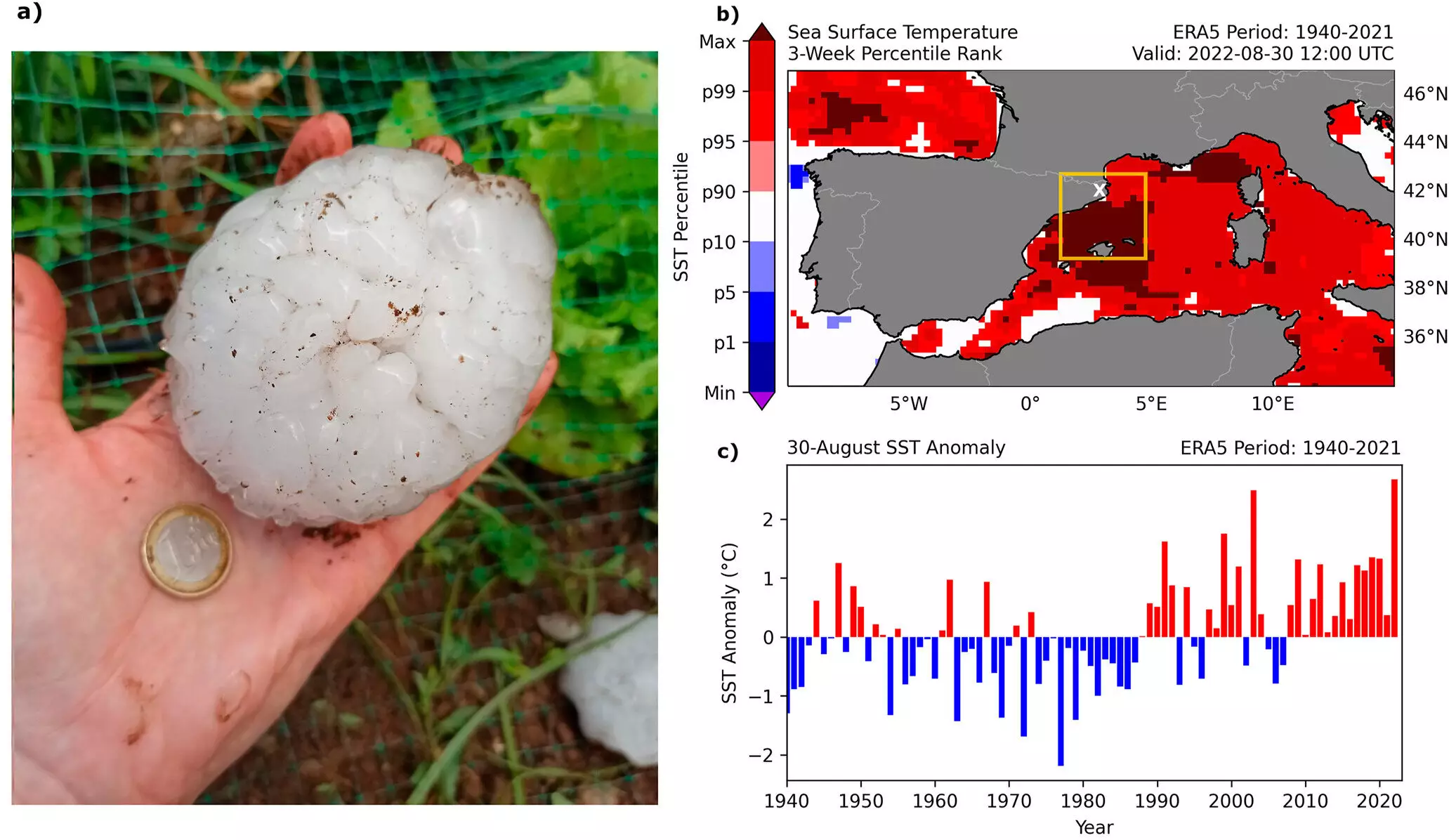In August 2022, Gerona, north-eastern Spain, experienced a severe hail event that caused extensive damage and casualties. The hailstones, reaching a size of 12cm, were the largest ever documented in the country. This extreme weather event led to serious consequences, including injuries and one fatality. The cause of this unusually severe hailstorm was investigated by Professor Maria Luisa Martin and her colleagues from Universidad de Valladolid, Spain. Their research, published in Geophysical Research Letters, delved into the role of a record-breaking marine heat wave in exacerbating the hail storm.
The Iberian Peninsula witnessed a significant increase in sea surface temperature, averaging 3.27°C over six weeks in the summer of 2022, the highest on record. This rise in sea surface temperature contributed to the intensification of atmospheric convective energy, creating ideal conditions for supercell development in the Pyrenees and ultimately leading to the extreme hail event in Gerona. By analyzing a dataset of over 280 documented supercells from 2011 to 2022, the researchers simulated the hail event with and without the influence of a marine heat wave in the Mediterranean Sea.
Increased sea surface temperatures, a consequence of global warming, have a direct impact on the frequency and intensity of prolonged heat wave events. The simulations conducted by Professor Martin and her team revealed that large hail storms could occur approximately four hours per year, with the Maestrazgo region of north-eastern Spain being particularly susceptible to such events due to its role in supercell formation. The warmer Mediterranean Sea, attributed to anthropogenic-induced temperature increases, was identified as a key factor in the occurrence of extreme hail events.
Modeling pre-Industrial climate conditions, the researchers determined that marine heat waves were significantly less frequent and severe, indicating the influence of climate change on extreme meteorological events. The simulations also showed a notable reduction in conditions conducive to hail events when marine heat waves were absent, emphasizing the interconnectedness of Earth’s climate systems. The study serves as a warning of the potential increase in marine heat waves and other extreme weather events due to continued climate change, highlighting the environmental, social, and economic impacts that may arise as a result.
Professor Maria Luisa Martin and her colleagues’ research sheds light on the correlation between marine heat waves and extreme hail events, illustrating the far-reaching consequences of climate change on our planet’s weather patterns. By investigating the factors contributing to the unprecedented hail event in Spain, the study serves as a cautionary tale of the escalating impacts of global warming on meteorological phenomena. As we continue to experience increasingly severe weather events, it becomes imperative to address the root causes of climate change and mitigate its effects to safeguard our environment and communities.


Leave a Reply